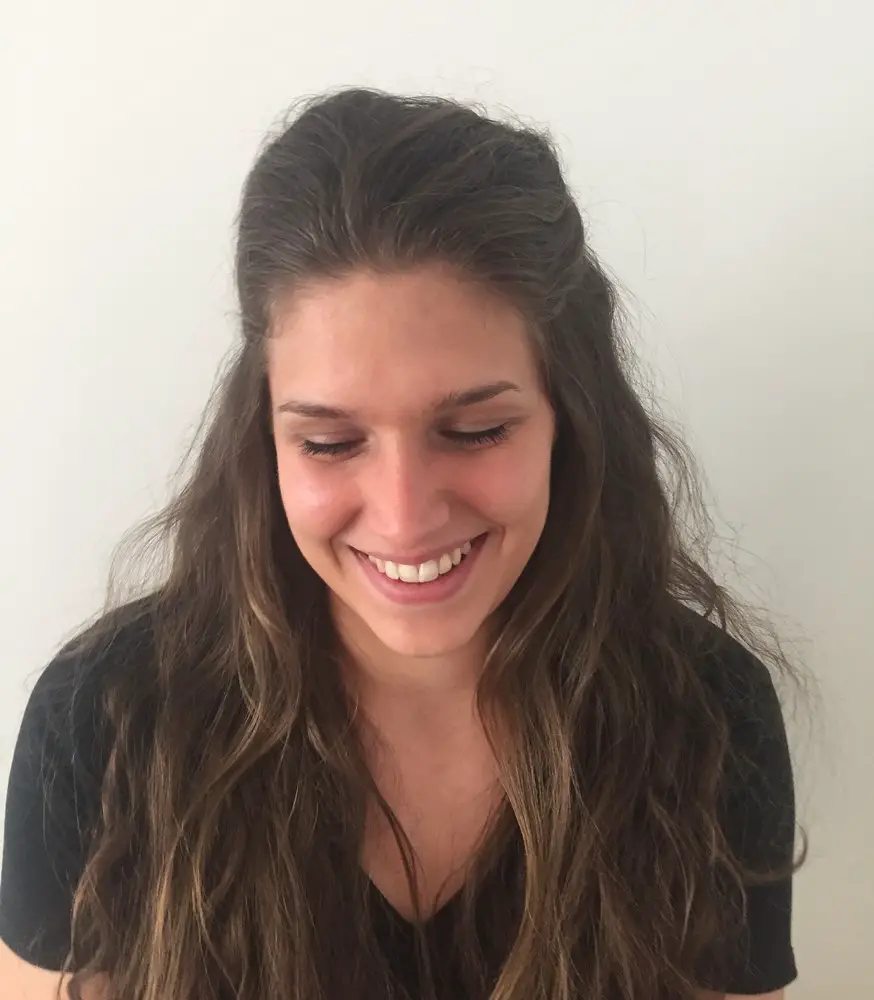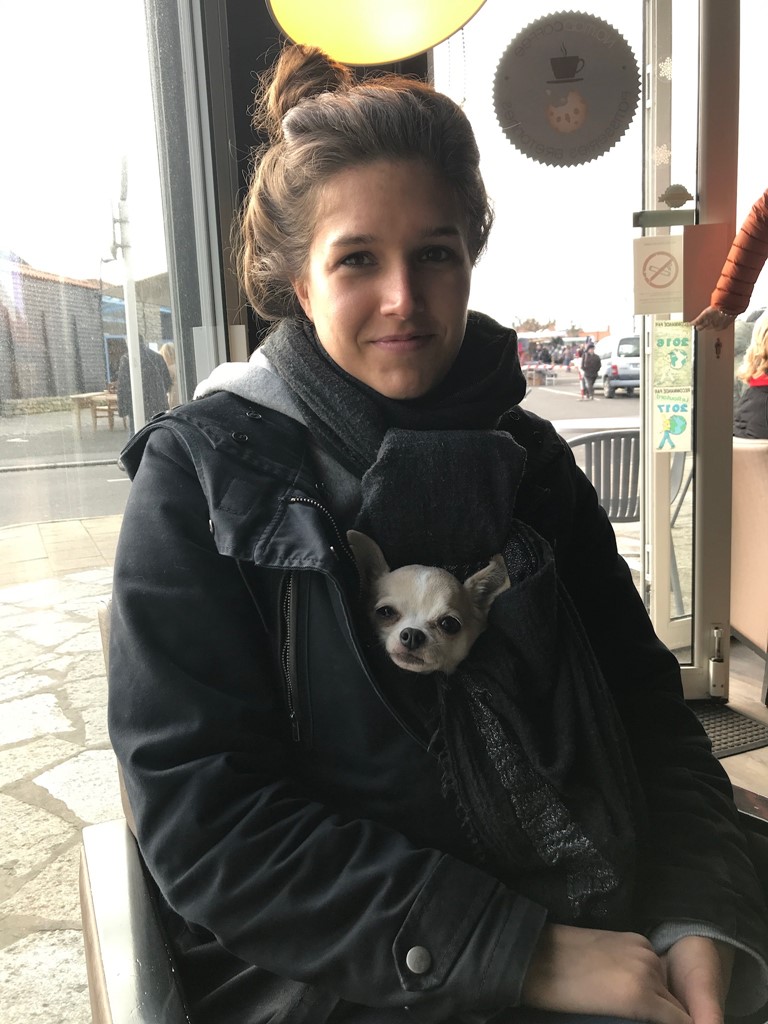Book-Talk with Indie Maker Marie Denis: 'Knowledge Comes from the Diversity of Your Readings'
 Marie Denis is an indie maker from France who has been working in the tech field for many years, as a developer. At the end of 2017, she and Vincent, her partner, decided to leave Paris, their home city, and became digital nomads, traveling and making a living from their indie startups.
Marie Denis is an indie maker from France who has been working in the tech field for many years, as a developer. At the end of 2017, she and Vincent, her partner, decided to leave Paris, their home city, and became digital nomads, traveling and making a living from their indie startups.
Shortly after leaving the French capital, they started working on Threader, an app that compiles the best Twitter threads and displays them in a well-designed single view for smooth reading.
During this new stage of life, Marie realized she was mostly interacting with male makers. Last year, she created Women Make, an open community for women entrepreneurs where they can find support in the maker space. The community is free and puts women makers at the forefront.
In the past year, Marie and Vincent created several apps and projects. Their recent one is IP Man, a MAC menu bar app that displays your public IP address so you can have it close at hand and copy/paste it easily.
They’ve also documented their journey on the blog Two Makers (you can start by reading this article: ‘A year of making and nomading‘).
From our interview with Marie you’ll find out more about her favorite books, including the one that helped her have a different perspective on entrepreneurship, the biggest challenges as a digital nomad, how she chooses what to read next, and common mistakes made by entrepreneurs.
P.S. Women makers, feel free to join the community! It’s a great place to connect, share your work and get constructive feedback. I (Cristina) am one of the Patreon supporters, there’s also a Telegram group, a newsletter where you can subscribe, or follow the Twitter account.
What books had the biggest impact on you? Perhaps changed the way you see things or dramatically changed your career path.
I don’t think one book changed dramatically my career path but it’s rather a collection of thoughts I gathered from several books that helped me see things differently and reflect on my own life. When I see something interesting or that I could apply, I usually write a small note, especially if that’s something actionable. That’s what’s interesting with books: the more you read, the more you learn, the more you pick ideas from here and there, the more you can try things and change your way of seeing the world. I think knowledge comes from the diversity of your readings.
What books would you recommend to someone who’s at the beginning of their career? Why?
 Zero to one by Peter Thiel: although it’s not my favorite book it’s a good way to understand the mentality of this industry and get into the swings of things.
Zero to one by Peter Thiel: although it’s not my favorite book it’s a good way to understand the mentality of this industry and get into the swings of things.
The Alchemist by Paulo Coelho: I see it as a spiritual guide, it helps me see things differently, with hindsight. What I like the most is that it reminds me that sometimes it’s better to listen to your heart rather than people telling you what you should do. And I think it’s really important, especially in this industry. A lot of people have something to say and advice to give, but in the end it’s different for everyone so it’s important to listen to your guts.
I listen to it on my phone, the narrators are really awesome in the French version. It relaxes me and it’s my n°1 technique to get to sleep.
The Black Swan by Nassim Taleb: I’m not sure that’s the goal of the book but it helped me understand the random characteristic of entrepreneurship. Although the author applies it more to finance and research, it explains how some very rare events have disproportionate consequences and how we can’t predict them. I think success in entrepreneurship is the result of a lot of factors and not just hard work. So it might not be very positive and motivating but in a way it allowed me to have this perspective at a time where we highlight lots of successful entrepreneurs and don’t necessary see all the failures.
We’re interested in finding out more about your reading habits. How often do you read? What format do you prefer? Do you have any notes-taking system?
I don’t read as much as I wish. It’s actually on the list of my good resolutions for 2019. I’m old school I guess, but my favorite format is definitely paper. But as a nomad I have maximum 2 physical books with me. Otherwise I listen to audiobooks on Audible. The experience can be really nice depending on the quality of the narrator. I have a few ebooks that I read on my phone. It’s not great but handy when I want to do a small reading break.
[sc name=”subscribe”]
How do you choose what books to read next? Do you prioritize books recommended by certain people?
I think I almost always work with recommendations. Then I see what kind of book I want to read. I recently asked for recommendations in a tweet and now have a great list of books on my wishlist.
For my next readings I picked up Brotopia by Emily Chang and Atomic Habits by James Clear because I heard a lot of good about them. I also chose Collected Fictions by George Guidall because I love fiction and need to alternate with non-business related books, otherwise I get bored.
Even though most people are aware that “overnight success usually takes 10 years”, they are still looking for shortcuts and “latest hacks”. What are three common mistakes made by entrepreneurs?
The first one that comes to my mind is when people launch a product and get excited by the spike of traffic then expect it to last. It’s not how it works. Launching is great to get attention and get your first users but it’s just one step among many. I actually think the most difficult is after. And indeed, “overnight success usually takes 10 years”. It takes time and work and continuous effort to build a sustainable business. And from what we can see from these successes, most people launched and failed several times before that. I don’t think it’s necessarily bad to look for shortcuts and hacks, it can help. But your strategy shouldn’t rely solely on that.
'Knowledge comes from the diversity of your readings.' - book-talk with Marie Denis (@marie_dm_), creator of @women_make_ Share on XWhat are your biggest challenges in working as a nomad? How do you manage to stay efficient?
For me the most challenging is keeping a rhythm and good habits even when you change place, environment, facilities, etc. Last year I stayed around one month in each place and that was too short. Packing, traveling is tiring. And you don’t really have the time to adapt. This year I’m making longer stays.
To stay efficient I try to have a clear vision of what I need to achieve. I’ve been trying different methods. Recently I started using Notion and their weekly agenda template. Each Monday I put between 2 and 5 tasks for each day and I try to complete all of them. There are usually a few unchecked boxes at the end of the week that I report for the next one.
Links where you can follow Marie Denis or find out more about her projects:
- Connect with Marie on Twitter
- Women Make
- Threader
- IP Man
- Two Makers
All books mentioned by Marie in our interview:
- Zero to One: Notes on Startups, or How to Build the Future, by Peter Thiel and Blake Masters
- The Alchemist, by Paulo Coelho
- The Black Swan: The Impact of the Highly Improbable, by Nassim Nicholas Taleb
- Brotopia: Breaking Up the Boys’ Club of Silicon Valley, by Emily Chang
- Atomic Habits: An Easy & Proven Way to Build Good Habits & Break Bad Ones, by James Clear
- Collected Fictions, by Jorge Luis Borges